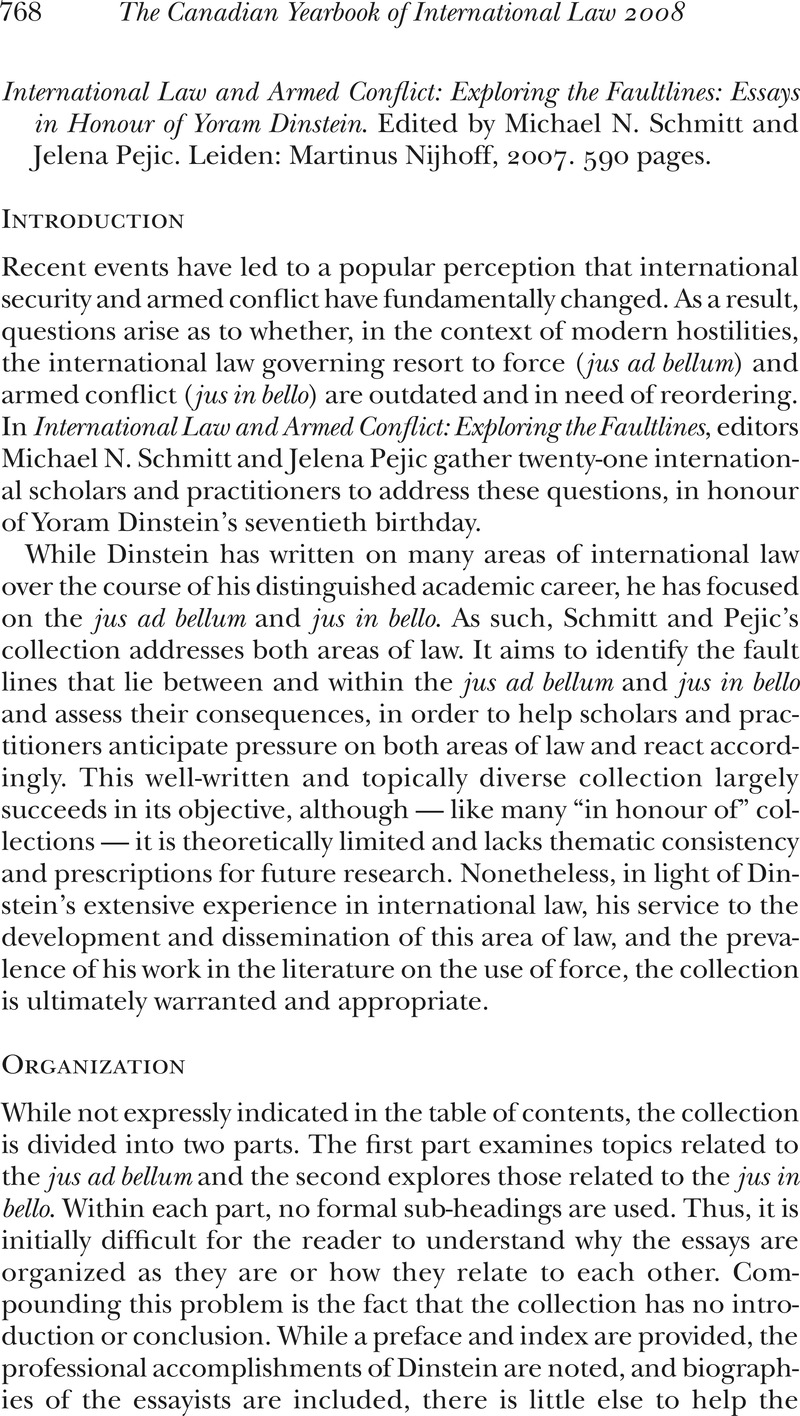No CrossRef data available.
Published online by Cambridge University Press: 09 March 2016

1 For instance, in response to the North Atlantic Treaty Organization’s military action in Kosovo in 1999, China, Russia, India, Namibia, Belarus, Ukraine, Iran, Thailand, Indonesia, South Africa, and the 133 developing states of the G-77 all reaffirmed that unilateral humanitarian intervention was illegal and unacceptable, and the UN General Assembly in September 1999 voted 107 to 7 (with forty-eight abstentions) in favour of a resolution rejecting “unilateral coercive measures.” See Byers, M. and Chesterman, S., “Changing the Rules about Rules? Unilateral Humanitarian Intervention and the Future of International Law,” in Holzgrefe, J.L. and Keohane, R.O., eds., Humanitarian Intervention: Ethical, Legal, and Political Dilemmas (Cambridge: Cambridge University Press, 2003) 184 Google Scholar. Moreover, regarding the war on Iraq in 2003, 147 of the world’s (then) 191 UN member states refused to participate in the US-led coalition. See Murphy, S.D., “Assessing the Legality of Invading Iraq” (2004) 92 Georgia L.J. 173 at 225Google Scholar. While the United States could argue that the inability or unwillingness of the Security Council to clearly authorize the foregoing uses of force suggests the shortcomings of that institution, opponents could argue that the Council served its founding purpose by refusing to sanction uses of force that could not be convincingly reconciled with the UN Charter and international law. See Falk, R., “What Future for the UN Charter System of War Prevention?” (2003) 97 A.J.I.L. 590.Google Scholar